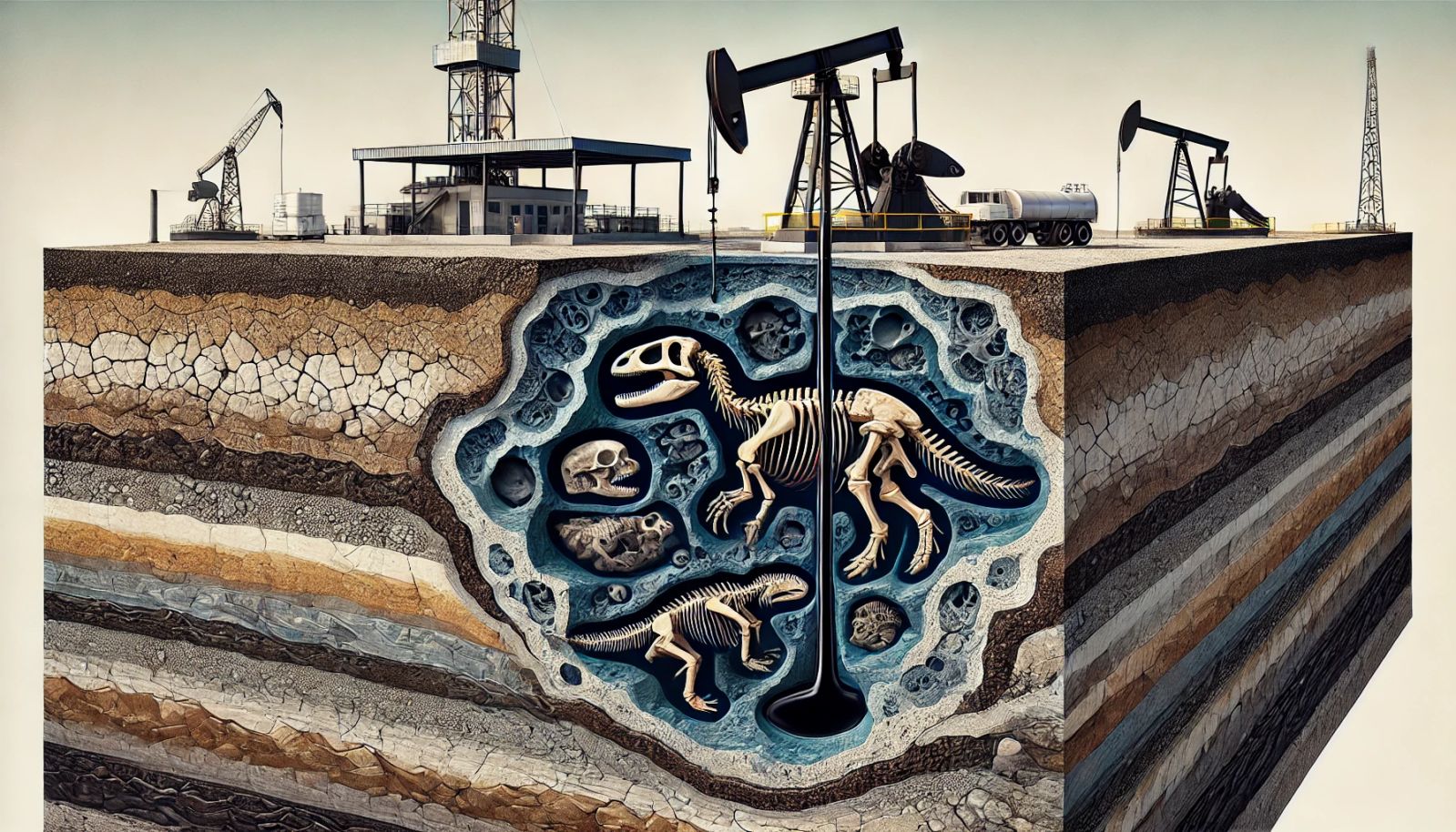Does oil really come from the decomposition of dinosaurs? 🛢️
Published by Adrien,
Source: The Conversation under Creative Commons license
Other Languages: FR, DE, ES, PT
Source: The Conversation under Creative Commons license
Other Languages: FR, DE, ES, PT
Follow us on Google News (click on ☆)
Considering that one-third of greenhouse gas emissions responsible for global warming come from the combustion of oil and natural gas, are we facing a posthumous revenge from the dinosaurs, akin to the pharaohs of Egypt?
Actually, no. Oil, like natural gas, primarily comes from the degradation of microorganisms, particularly phytoplankton.

Oil and natural gas are hydrocarbons, meaning they are groups of molecules rich in carbon and hydrogen. Hydrocarbons are referred to as organic molecules. On Earth, the vast majority of these molecules are made by and found within living organisms: proteins, carbohydrates, lipids, DNA... but they also come from their decay.
In the soil, there's an accumulation of dead leaves in the litter layer, or decayed organic matter from humus. There's also sedimentary organic matter, which gets buried in marine, lake, or delta sediments.
Thus, oil and natural gas are the result of the burial of certain types of organic matter over millions of years. When organisms die, they sink to the bottom of the water, gradually get buried in sediments where temperature and pressure rise, turning the accumulated cells into hydrocarbons if the physical and geological conditions are right.
Geologists study this matter to understand its origins and which living organisms contributed to its formation, through the analysis of specific molecules called "biomarkers", which are essentially fossils of organic material.
No T-rex or Diplodocus remains in oil
The study of oil deposits reveals several things. First, they are oceanic deposits, which already suggests that they do not contain the remains of T-rex or Diplodocus. Could oil contain marine dinosaur remains? In reality, biomarkers indicate that the organic matter responsible for oil formation is mostly an accumulation of microorganisms and algae.
For example, we find in oils the degraded product of chlorophyll, essential for photosynthesis in plants and bacteria. Furthermore, source rocks, which contain the organic matter leading to oil, have ages ranging from 15 to 550 million years (or even a billion years)! In comparison, dinosaurs were only present on Earth from 230 to 66 million years ago. Thus, the formation of oil is independent of the presence of dinosaurs, or even animals at large.
However, it is true that most of the oil resources used by our societies were formed during the Jurassic and Cretaceous periods, when dinosaurs roamed the Earth. These warm periods were conducive to the burial of large amounts of organic matter. So it's possible to imagine that some oils might contain traces of dinosaurs.
Dinosaurs didn't weigh that much
Yet, although they could be gigantic, we mustn't forget that, like mammals, they probably represented only a small fraction of the biomass (the total mass of all living organisms). Today, if you sum up the weight of all the carbon in all living matter, animals altogether represent barely 0.5% of this total. And mammals, both land and aquatic, represent less than... 0.05% of the total. In reality, insects, mollusks, and worms are far more abundant. And no matter what, they still don't come close to the overwhelming presence of plants, followed by bacteria, on land and in the sea.
So, it's reasonable to think that the accumulation of zoo- and phytoplankton surpasses the accumulation of large animal carcasses such as those of dinosaurs. And it's worth noting that oil deposits tend to form during warm periods in Earth's history.
Because the burial of organic matter in sediments helps store CO₂ away from the atmosphere, the formation of oil and natural gas over millions of years has contributed to cooling the Earth's surface. In contrast, the sudden release of these resources by humans into the atmosphere contributes to warming it.
By Guillaume Paris - Geochemist, CNRS research associate at the Center for Petrographic and Geochemical Research of Nancy, University of Lorraine